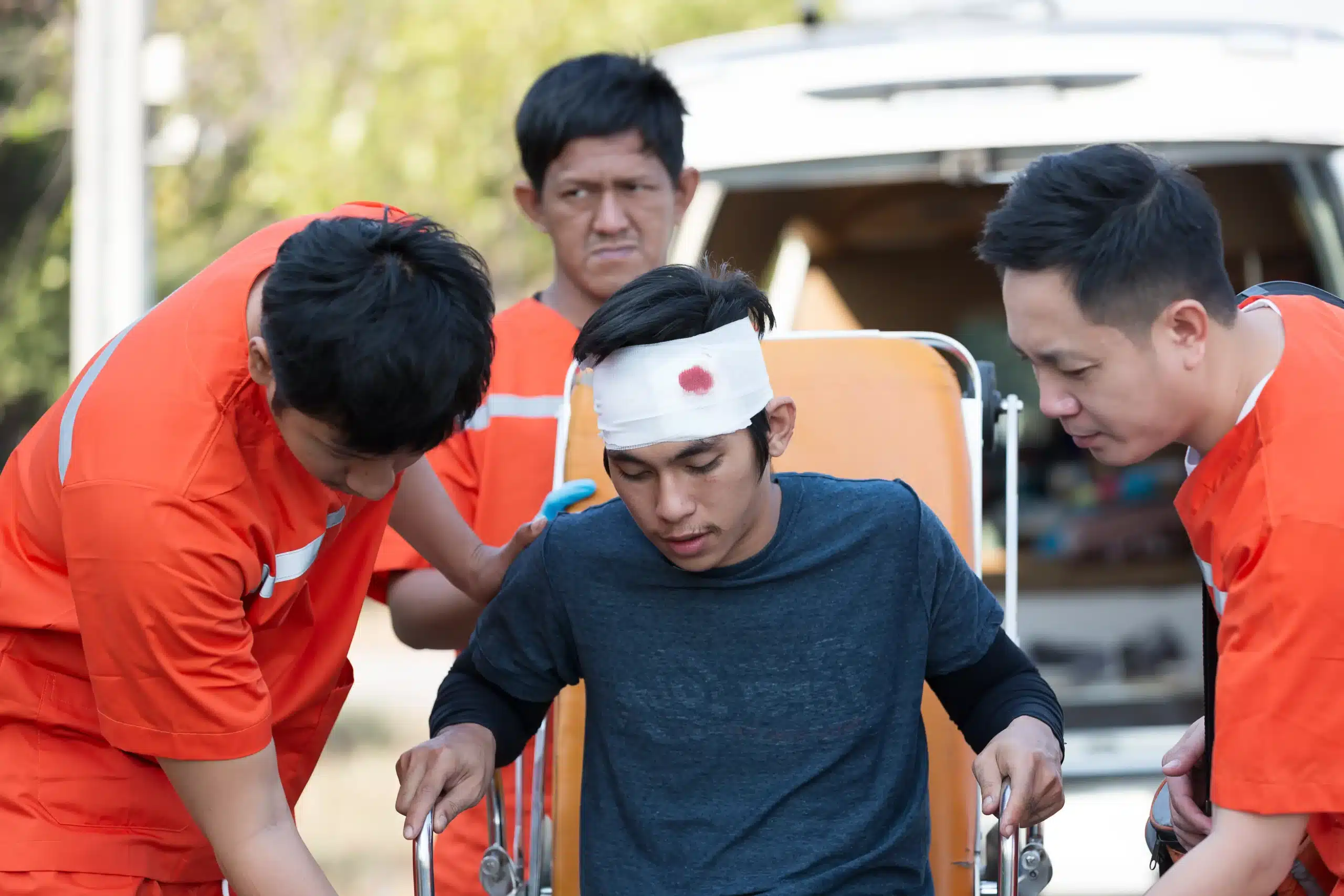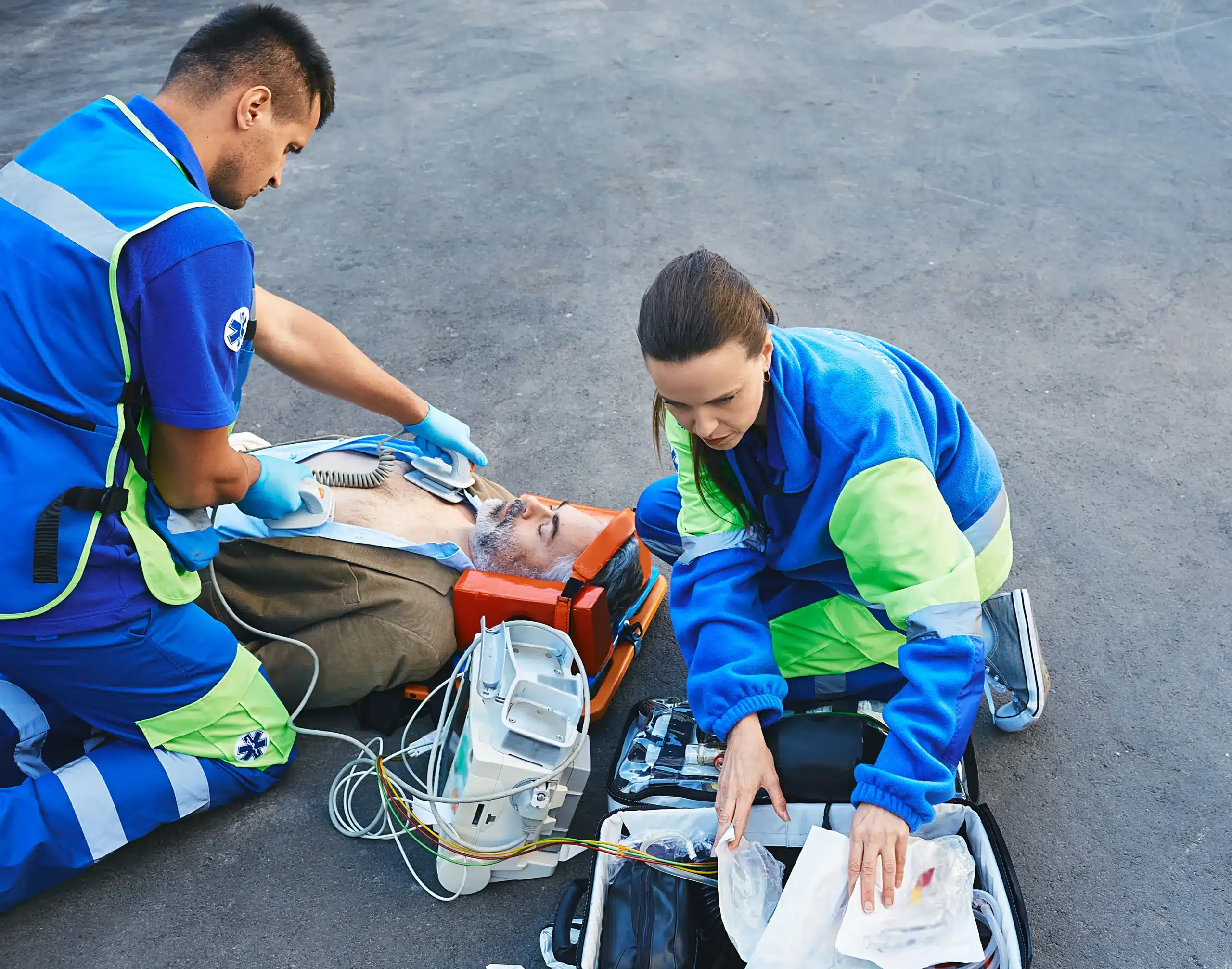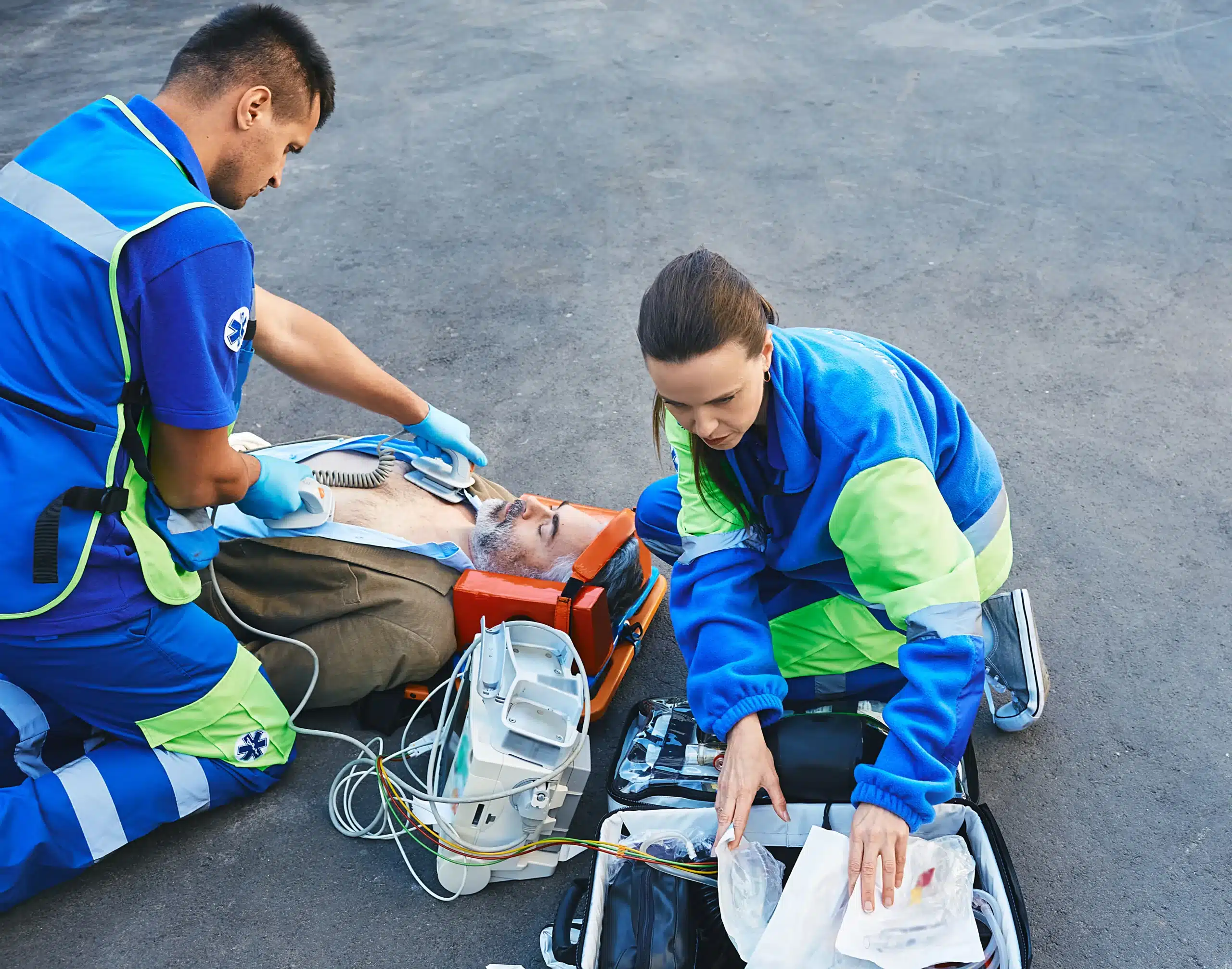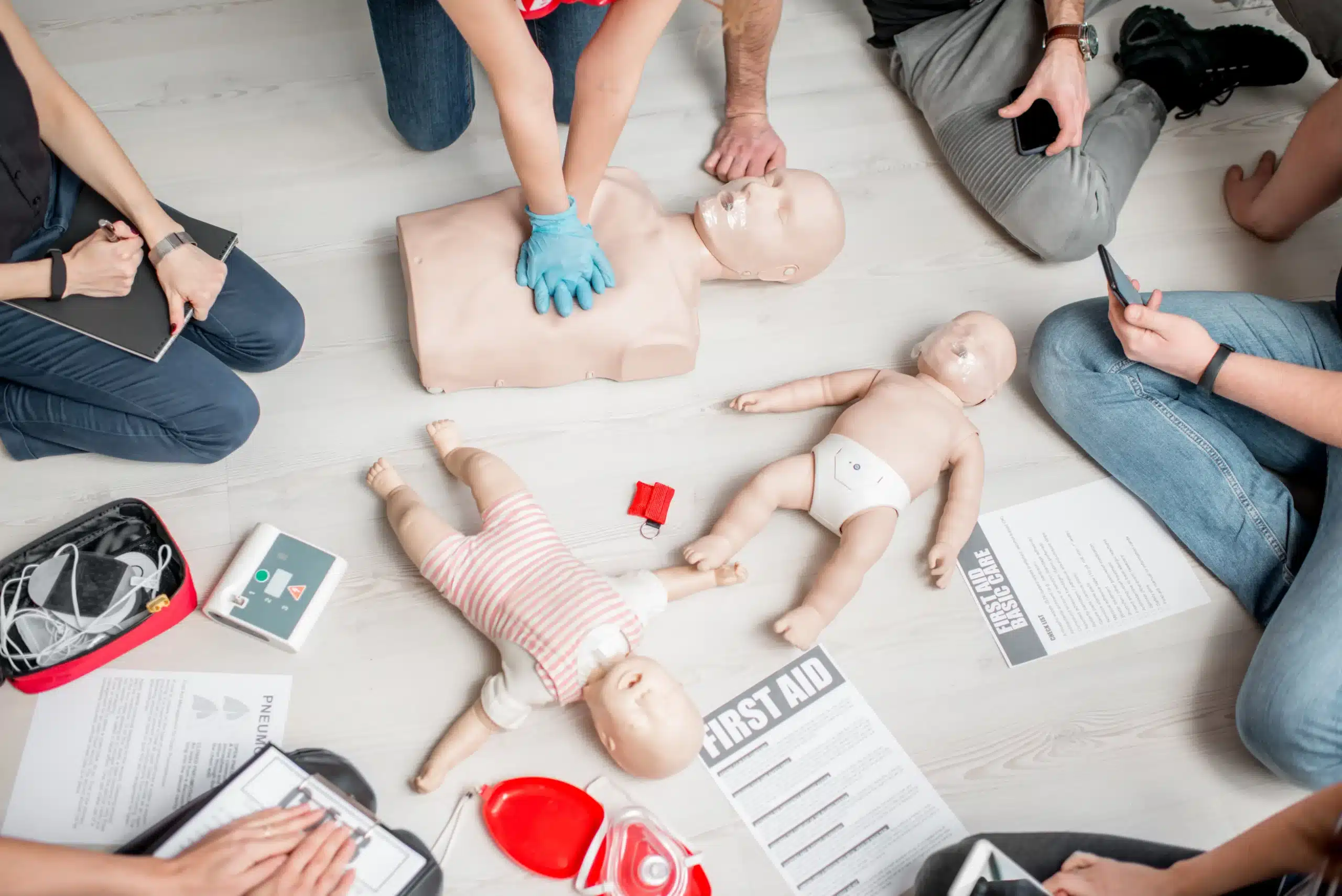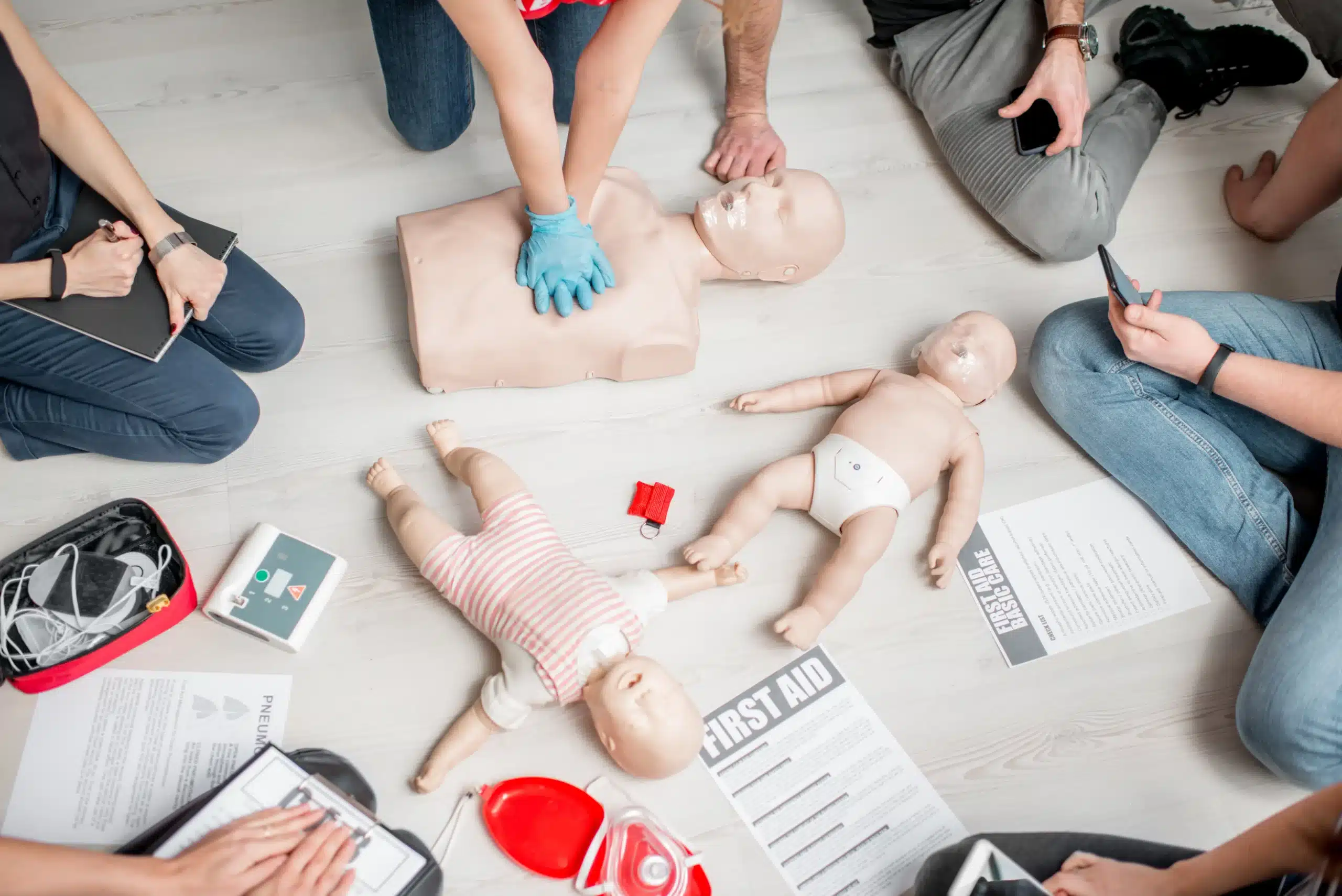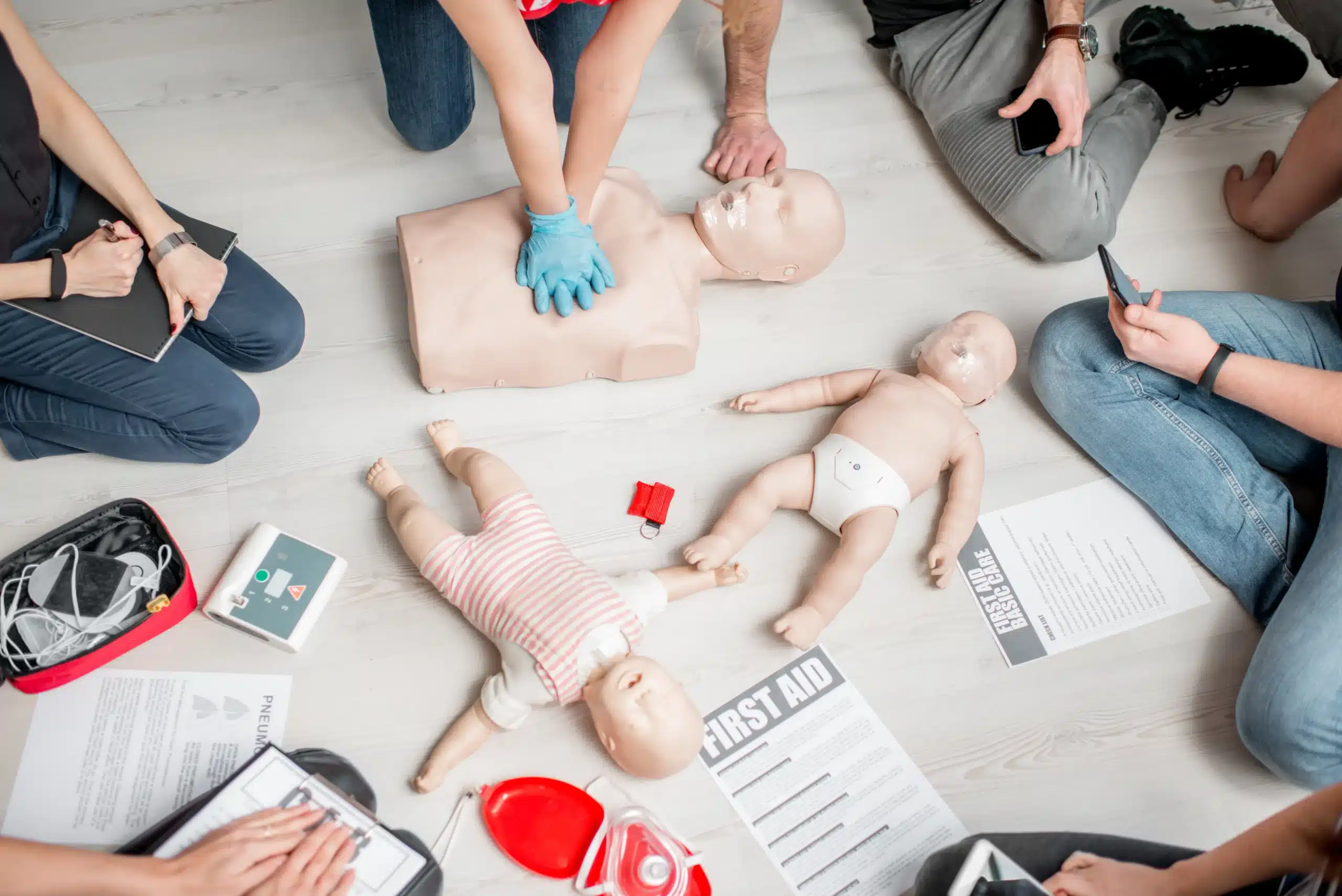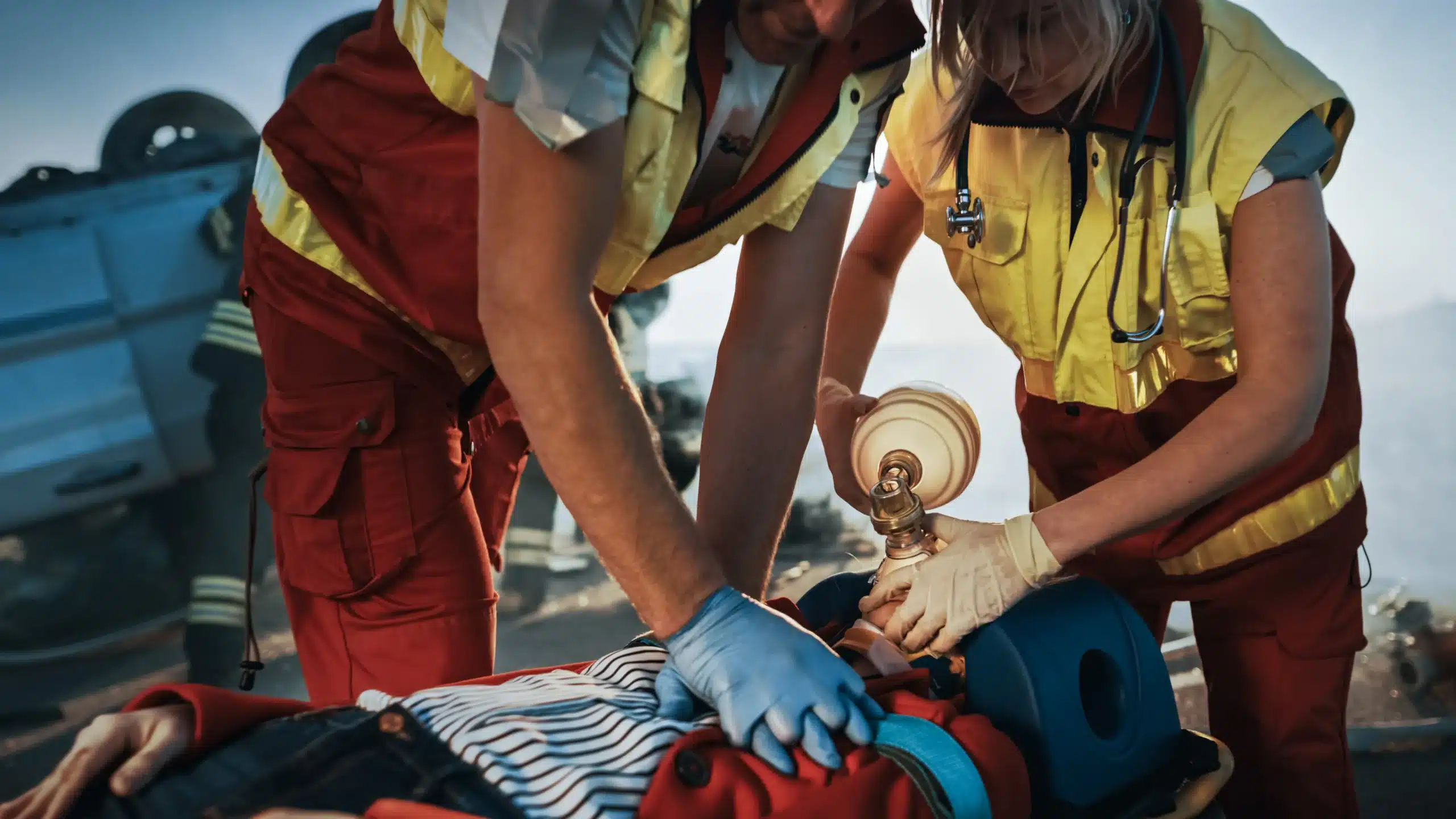Juggling a busy schedule in healthcare often means sacrificing valuable training time. But when it comes to life-saving skills like CPR, staying sharp is non-negotiable. RQI in Concord offers a practical solution for busy professionals. This innovative program from the American Heart Association emphasizes short, frequent practice sessions, making it easier to fit training into your already packed schedule. This article delves into the benefits of RQI in Concord, highlighting how this modern approach can transform your CPR training and improve patient outcomes. We’ll cover everything from the basics of RQI to the specific certifications available in Concord, empowering you to make informed decisions about your professional development.
Key Takeaways
- RQI improves CPR skills and patient care: Frequent practice and personalized feedback help healthcare professionals in Concord deliver more effective CPR, leading to better patient outcomes.
- RQI training fits your schedule: The flexible, blended learning format combines online learning with short, convenient skills sessions, making it easier to maintain certification.
- RQI offers various certification levels: From BLS to ACLS and PALS, find the right RQI certification in Concord to meet your specific healthcare needs.
What is RQI and Why Does it Matter in Concord?
RQI, or Resuscitation Quality Improvement, represents a significant advancement in CPR training, moving beyond traditional methods to offer a more effective and convenient approach. Developed by the American Heart Association, RQI focuses on high-quality CPR skills maintenance for healthcare professionals through low-dose, high-frequency training. This means short, regular practice sessions designed to reinforce essential skills and build confidence. RQI covers certifications in Basic Life Support (BLS), Advanced Cardiovascular Life Support (ACLS), and Pediatric Advanced Life Support (PALS), ensuring comprehensive training for various emergency situations.
Why is this important in Concord specifically? RQI addresses the challenges faced by busy healthcare providers in maintaining their life-saving skills. The program’s blended learning format combines online learning with hands-on skills sessions using voice-assisted mannequins (VAMs). These VAMs provide real-time feedback, creating a more interactive and personalized learning experience. This approach not only makes training more engaging but also helps providers in Concord hone their skills and improve patient outcomes. For healthcare professionals in Concord seeking to maintain their certifications and provide the best possible care, RQI offers a practical and impactful solution. You can learn more about the RQI program and its benefits through our website.
How CPR Training Evolved: From Traditional to RQI
Traditional CPR training typically involved infrequent, lengthy classes. While well-intentioned, this approach often led to a decline in skills between recertification courses. Think back to your last CPR class—how much do you really remember? Studies show that CPR skills can decay significantly within months of initial training, impacting the effectiveness of life-saving interventions. This realization prompted a shift toward more frequent and readily available training methods. Enter Resuscitation Quality Improvement, or RQI.
RQI represents a significant evolution in CPR training. It acknowledges the reality of skill decay and offers a proactive solution. Instead of cramming all your training into one long session, RQI uses a “low-dose, high-frequency” approach. This involves shorter, more frequent practice sessions, often incorporating online learning modules and hands-on skills assessments. This blended learning style makes it easier to fit training into busy schedules and reinforces skills regularly, leading to better retention and improved patient outcomes. The emphasis on continuous improvement ensures providers maintain a higher level of proficiency, ready to respond confidently in real-world emergencies.
RQI also leverages technology to enhance the learning experience. Simulation tools and online platforms provide interactive learning opportunities, allowing providers to practice their skills in a safe and controlled environment. This modern approach combines online learning, simulation, and hands-on practice for effective skill mastery. This shift from traditional, infrequent training methods to a more dynamic and engaging learning experience has proven to be more effective in maintaining crucial CPR skills. Laerdal Medical offers more information on the RQI program and its benefits. The program’s flexible format and emphasis on frequent practice makes maintaining your skills easier and more convenient than traditional CPR courses. This is particularly important for healthcare professionals who need to maintain their certification and ensure they are always prepared to provide the best possible care.
RQI Certifications in Concord
RQI isn’t a one-size-fits-all certification—it offers different levels to meet various healthcare needs. Whether you’re a medical student, a seasoned healthcare provider, or work in a related field, understanding these distinctions is crucial. Here’s a breakdown of the key RQI certifications available in Concord:
BLS
The American Heart Association RQI (Resuscitation Quality Improvement) program is a popular and efficient way for medical and healthcare professionals in Concord to get their official American Heart Association BLS certification cards. This foundational course covers essential life-saving techniques for adults, children, and infants, including CPR, AED use, and relief of choking. It’s the cornerstone for anyone working in healthcare or a related field. The program’s blended learning format and emphasis on frequent practice makes maintaining your skills easier and more convenient.
ACLS
For healthcare providers who respond to emergencies or treat patients in respiratory or cardiac arrest, RQI’s ACLS certification is essential. This advanced course builds upon BLS skills, focusing on high-performance team dynamics and effective resuscitation techniques for adults. This makes it a valuable asset for doctors, nurses, paramedics, and other critical care professionals in Concord. The flexible approach offered by RQI makes staying up-to-date on these critical skills more manageable.
PALS
Pediatric Advanced Life Support (PALS) is another crucial RQI certification, specifically designed for healthcare providers who treat infants and children. This course equips professionals with the specialized knowledge and skills needed to manage pediatric emergencies, from respiratory distress to cardiac arrest. Healthcare professionals in Concord can significantly benefit from the RQI program, which includes essential life-saving skills such as PALS. It’s a must-have for pediatricians, pediatric nurses, emergency medical technicians, and anyone involved in pediatric care. The RQI format makes it easier to fit this important training into busy schedules.
Who Should Get RQI Certified in Concord?
RQI certification is highly beneficial for a wide range of people in Concord, especially those working in healthcare. Doctors, nurses, medical assistants, paramedics, and hospital administrators in Concord all benefit from the RQI program. For these professionals, regular CPR certification, like that offered through RQI, is essential for maintaining skills and providing effective patient care. Learn more about why CPR is so critical in healthcare on our blog. Beyond these roles, anyone working in healthcare, from emergency responders to administrative staff, can improve their preparedness through RQI certification.
RQI isn’t just for healthcare professionals, though. It equips anyone with essential, life-saving skills. Childcare providers, teachers, coaches, and even concerned community members in Concord can gain confidence and competence in responding to emergencies. The program’s blended learning format makes it easier and more convenient to learn and maintain these vital skills than traditional CPR courses. Whether you’re a professional or simply someone who wants to be prepared, RQI certification offers valuable training for anyone in Concord. Our guide to RQI certification offers a comprehensive overview.
Enrolling in RQI: A Step-by-Step Guide
Here’s how simple it is to get your American Heart Association BLS, ACLS, or PALS certification through RQI.
Learn Online
First, complete the online portion of the course. This self-paced learning takes just a few hours and covers the essential knowledge you’ll need for your chosen discipline (BLS, ACLS, or PALS). You can study at your own speed and revisit sections as needed. This online component allows you to fit the training around your schedule, making it convenient for busy professionals and parents in Concord. For more information on RQI classes, check out our RQI classes page.
Assess Your Skills Hands-On
After finishing the online portion, you’ll move on to the hands-on skills assessment. This involves practicing your skills on a simulation station. The station provides real-time feedback, helping you refine your technique and ensure you’re performing CPR correctly. This high-quality, low-dose, high-frequency training is key to the RQI program’s effectiveness. It helps build muscle memory and confidence, so you’re prepared to act in a real-life emergency.
Get Certified the Same Day
Once you’ve successfully completed both the online learning and the skills assessment, you’ll receive your official American Heart Association certification card the same day. This card is valid for two years, demonstrating your proficiency in CPR. You’ll leave confident and ready to apply your skills. Learn more about our various certification courses. We offer a low price guarantee on all our courses.
RQI vs. Traditional CPR Certification
RQI and traditional CPR certification both aim to equip individuals with life-saving skills, but their approaches differ significantly. Understanding these differences helps you choose the best path for your needs.
Training Quality and Skill Retention
Traditional CPR certification typically involves a one-time course with a skills check. While effective initially, studies show that skills can decline quickly after training. RQI addresses this through “low-dose, high-frequency training.” Short, regular practice sessions reinforce skills, leading to better retention and improved proficiency during real emergencies. This model ensures you’re always ready to respond effectively. For busy professionals, this approach offers a practical way to maintain crucial skills without sacrificing large blocks of time. RQI programs offer a modern approach to CPR training.
Convenience and Flexibility
One of RQI’s biggest advantages is its flexible learning format. Online learning modules allow you to study at your own pace, anytime, anywhere. You can review material, practice skills, and complete assessments when it’s convenient for you. This contrasts with traditional CPR classes, which require attendance at a specific time and location. RQI’s blended learning approach combines online learning with short, hands-on skills sessions, making it easier to fit training into a busy schedule. This flexibility is particularly beneficial for healthcare providers, first responders, and others who need to maintain certification while juggling demanding work schedules.
Cost and Time Savings
While the upfront cost of RQI might seem comparable to traditional CPR courses, the long-term savings can be significant. Traditional methods require complete recertification every two years, often involving another full-day class. RQI’s quarterly skills checks are shorter and more focused, reducing the overall time commitment. This translates to less time away from work and potentially lower costs over time. Furthermore, improved skill retention through frequent practice can lead to better patient outcomes, which has significant implications for healthcare systems and professionals. Safety Training Seminars offers a low price guarantee on CPR certifications.
Benefits of RQI in Concord
RQI training offers several advantages for healthcare providers in Concord, focusing on improved patient outcomes, continuous skill development, and addressing common training hurdles. Let’s explore why RQI is making such a difference.
Improved CPR & Patient Outcomes
RQI programs prioritize high-quality CPR skills through consistent practice and performance feedback. Unlike traditional CPR courses where skills can decline over time, RQI emphasizes frequent, short training sessions to maintain proficiency. This regular reinforcement helps healthcare providers in Concord deliver more effective CPR, ultimately leading to better patient outcomes. Studies suggest that infrequent retraining can lead to suboptimal CPR skills, highlighting the need for consistent training like RQI.
Continuous Skill Improvement
RQI’s blended learning approach combines online learning with hands-on practice. This flexible format makes maintaining your skills more convenient than traditional CPR classes. You’ll learn the material online and then practice your skills on a Simulation Station, receiving real-time feedback to refine your technique. This continuous improvement cycle ensures you’re always prepared to respond confidently in a real-life emergency. The combination of online learning and hands-on practice creates a powerful learning experience.
Addressing Time and Educational Hurdles
We understand that finding time for training can be challenging. RQI is designed to fit into busy schedules. The short, frequent sessions make it easier to integrate training into your workday, minimizing disruptions to patient care and staffing. RQI programs also simplify the enrollment process, making it easier to access the training you need. This streamlined approach helps healthcare providers in Concord focus on what matters most: providing excellent patient care.
Overcome Challenges with RQI
RQI isn’t just another CPR certification; it’s a solution designed to address the specific hurdles healthcare professionals and organizations face. From maintaining crucial skills to managing staffing limitations, RQI offers a practical and effective approach.
Prevent Skill Decay
Traditional CPR training often leads to skill decay. Think about it: you learn a life-saving technique, but if you only practice it every year or two, those skills get rusty. Studies show that CPR skills decline significantly within months of initial training. RQI combats this with its low-dose, high-frequency approach. Short, regular practice sessions keep your skills fresh and your confidence high, ensuring you’re always ready to respond effectively in an emergency. This approach aligns with recommendations from the International Consensus on Resuscitation, which suggests more frequent retraining to maintain optimal proficiency.
Streamline Training
Juggling busy schedules and demanding workloads makes finding time for traditional CPR courses a challenge. RQI’s flexible, blended learning format makes training more manageable. You can complete the online portion at your own pace, and the hands-on skills sessions are short and convenient, fitting seamlessly into your workflow. This streamlined approach saves time and reduces the disruption to staffing levels often associated with traditional training.
Balance Staffing and Training
For healthcare leaders, balancing adequate staffing with ongoing training requirements is a constant struggle. Pulling nurses and other healthcare providers off the floor for lengthy training sessions can strain resources and impact patient care. RQI helps alleviate this pressure by minimizing the time staff spend away from their primary duties. The shorter, more frequent practice sessions allow for greater flexibility in scheduling, making it easier to integrate training without compromising patient care or overworking your team. This article highlights the importance of finding solutions that address both staffing and educational needs. RQI offers a practical way to achieve this balance.
RQI Providers in Concord
Finding the right RQI provider is key to a smooth and effective certification process. Here are a few options available in Concord:
Safety Training Seminars
Safety Training Seminars offers a comprehensive range of RQI courses, including BLS, ACLS, and PALS. They emphasize a blended learning approach, combining online learning with hands-on skills sessions. This allows for flexible scheduling and personalized instruction. Their commitment to providing a low price guarantee makes them a strong contender for affordable, high-quality training. You can explore their RQI classes to see if their approach fits your learning style. They also offer BLS, ACLS, and PALS certifications. For childcare providers, they also offer the EMSA Child Care Health & Safety course.
Concord CPR Classes
Concord CPR Classes focuses on providing convenient and accessible RQI training. They understand the demands of busy professionals and offer flexible scheduling to accommodate various needs. Their experienced instructors are dedicated to helping students master the necessary skills. Visit their website for more information on their RQI offerings.
CPR Training Center of Concord
CPR Training Center of Concord offers a wide array of CPR and first aid courses, including ACLS, BLS, and PALS. They are committed to American Heart Association guidelines and have experienced instructors. Learn more about their courses and schedule.
Get the Most Out of RQI: Tips & Savings
RQI’s flexible approach to CPR training offers healthcare professionals several advantages. The blended learning format combines online learning with hands-on skills sessions, making it easier to fit training into busy schedules. Here’s how to maximize the benefits and potential cost savings:
Embrace the Flexibility: RQI’s online modules let you learn at your own pace, anytime, anywhere. Instead of blocking out an entire day for traditional CPR training, complete the online portion in shorter segments, fitting it around your other commitments. This flexible learning approach is a game-changer for busy professionals.
Practice Makes Perfect: RQI emphasizes frequent, low-dose practice sessions. These short, targeted sessions reinforce skills and prevent decay, ensuring you’re always ready to respond effectively in a real-life emergency. This focus on frequent practice builds confidence and competence. Schedule short practice sessions during downtime at work or incorporate them into regular team meetings.
Team Up for Success: Encourage your colleagues to embrace RQI. Group practice sessions can be a fun, effective way to reinforce skills and build camaraderie. A team of highly trained CPR providers creates a safer environment. This collaborative approach can also help address enrollment challenges by creating a supportive learning environment.
Track Your Progress and Celebrate Milestones: Many RQI programs offer online dashboards that track your progress and offer feedback. Use these tools to identify areas for improvement and celebrate your achievements. Recognizing your progress helps maintain motivation and ensures long-term skill retention. This ongoing reinforcement helps prevent skill decay, a common issue with traditional CPR training.
Explore Cost Savings: RQI offers significant advantages in flexibility and skill retention, and can also lead to cost savings. By reducing the need for lengthy classroom sessions and minimizing time away from work, RQI can be a more cost-effective option. Talk to your employer about the potential cost benefits of implementing RQI. They may even offer incentives for completing the program. Learn more about our low price guarantee.
Related Articles
- RQI Classes in Walnut Creek, CA – Walnut Creek CPR Classes
- CPR & First Aid Classes in Concord: Your Guide – Walnut Creek CPR Classes
- BLS Courses in Concord: Find the Right Class for You – Walnut Creek CPR Classes
- BLS Certification in Pleasant Hill: Your Complete Guide – Walnut Creek CPR Classes
- Why CPR is Important in Healthcare
Frequently Asked Questions
What exactly is RQI CPR training?
RQI, or Resuscitation Quality Improvement, is a more modern approach to CPR training developed by the American Heart Association. It focuses on short, frequent practice sessions and uses online learning combined with hands-on skills assessments to help healthcare professionals maintain their CPR skills. It’s a more convenient and effective way to stay up-to-date on these life-saving techniques.
How is RQI different from traditional CPR classes?
Traditional CPR classes are usually longer, less frequent, and can lead to skill decay over time. RQI addresses this by offering shorter, more regular practice sessions combined with online learning. This blended learning approach makes it easier to fit training into a busy schedule and helps you retain your skills better.
Which RQI certifications are available in Concord?
RQI offers several certifications, including BLS (Basic Life Support), ACLS (Advanced Cardiovascular Life Support), and PALS (Pediatric Advanced Life Support). Each certification caters to different healthcare needs, from foundational life support skills to advanced techniques for treating adults, children, and infants.
Who can benefit from RQI training?
While RQI is particularly beneficial for healthcare professionals like doctors, nurses, and paramedics, it’s valuable for anyone who wants to learn or maintain their CPR skills. This includes childcare providers, teachers, coaches, and even concerned community members. Anyone can learn these life-saving skills.
How do I sign up for an RQI course in Concord?
You can find RQI courses offered by various providers in Concord, including Safety Training Seminars, Concord CPR Classes, and CPR Training Center of Concord. Many providers offer flexible scheduling and online registration to make the process as easy as possible. Check their websites for course schedules and registration information.
